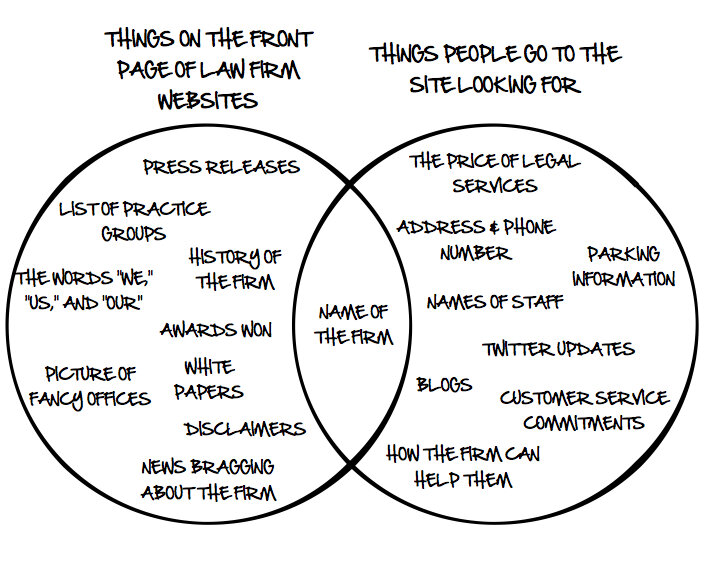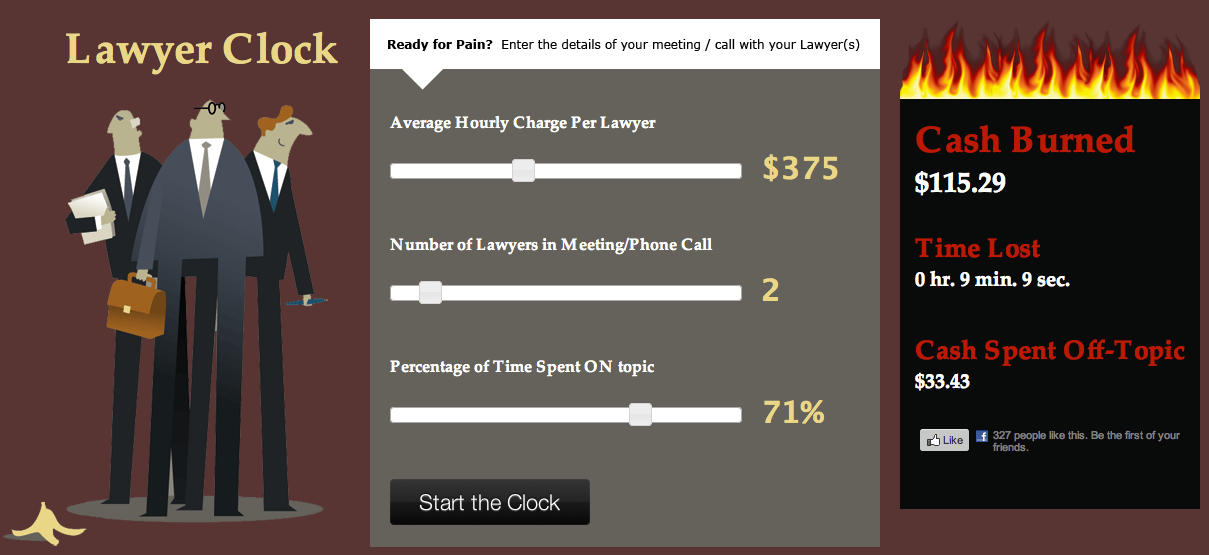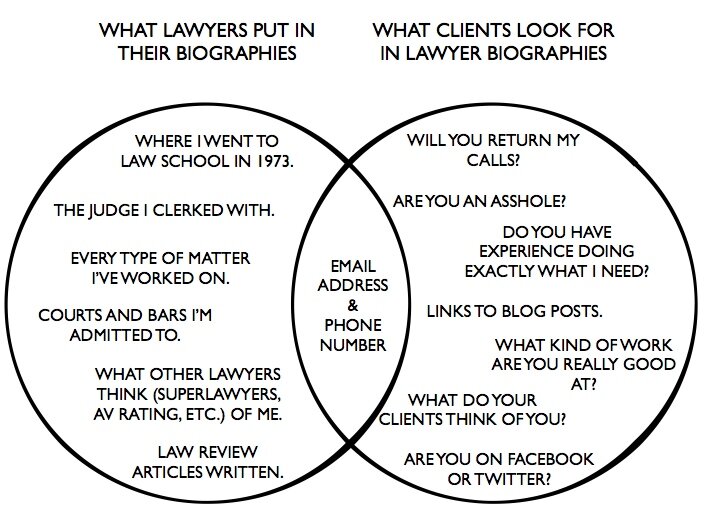Welcome back
It has taken me several weeks to gather all of the posts from the old blogs in Typepad and Wordpress, but it’s finally here. I’ll be doing lots more cleanup and highlighting dozens of “Best Of” posts over the next several months so come back again soon. I’m glad you’re here!
Explain the "Why" to Your Clients
Smashing Magazine has published a tremendous guide to designing an easy to understand e-commerce checkout process for web sites. If you take credit cards on your site, it is a must-read.
However, even if you don't charge people on the web, you should check out the article anyway, because it explains something about collecting sensitive information from people that we all need to understand: it isn't just the "what," but the "why" that matters:
Even unambiguous fields, such as “Email address,” are great opportunities to explain what you’ll use the data for. “Email address” may be a sufficient description, but most people would want to know how you’ll use their email address. Why do you need it?
In your client intake forms, do you explain why you need all the information you are asking for? Perhaps you should.
Respect Your Clients
I think it is fair to say that this goes for clients, too.

From This is Indexed.
Watch Your Time Like Your Clients Do
Next time you're chit-chatting with a client over the phone, head on over to Lawyer Clock and watch how fast your "burning" your client's cash -- they certainly are.
Haiku Your Way to a Better Elevator Pitch
I'm a fan of Haiku, and have been doing an exercise based upon it for several years now at conferences and law firm retreats. Instead of the 5-7-5 syllable format, I ask my audiences to answer three questions, using just five words for the first question, seven for the second and five again for the third.
Though I'll use different questions depending upon the event, I recently spoke to the New York City Bar about in-person networking and gave these three questions as a way to quickly develop an "elevator speech" that responds to the "What do you do?" question we get all the time.
The three questions, which must be answered with the specified number of words, are:
- Who do I help? (Answer in Five Words)
- What do I do for them? (Answer in Seven Words)
- Why do they need me? (Answer in Five Words)
An example response to these questions from a business lawyer could be:
I help small business owners
incorporate their businesses and protect their assets
so they can sleep better.
Another example for a personal injury lawyer may be:
I help injured accident victims
understand their rights and recover medical expenses
from people who are responsible.
Give it a try. It isn't an easy exercise, but it will help you answer that all-to-common networking question with something other than, "I'm a lawyer."
Ignite Law 2011 Speakers Named
The official speaker roster for Ignite Law 2011 is set. The event, produced by LexThink CEO Matt Homann and InsideLegal's CEO JoAnna Forshee, will feature 12 speakers sharing their view on the future of law practice and law technology, delivered via 6 minute rapid-fire presentations. Presenters were chosen based on online voting results and include a ‘who’s who’ of legal technology spanning attorneys, legal software executives, legal technologists, consultants and industry bloggers. Ignite Law 2011 takes place on April 10 at the Chicago Hilton, the eve of ABA TECHSHOW.
A total of 25 speaking topics were submitted and based on 1000s of online votes cast, 12 candidates were selected (including 8 'first-timers') to share their 6-minute Ignite presentations. The final Ignite Law 2011 speaker’s list includes:
Jim Calloway – “A Failure to Communicate”
Kevin Chern – “Creating the Perfect Future: Strategic Planning for Your Law Firm and Your Life”
Eric Cooperstein – “(Lack of) Privacy 2.0: Law in the Age of Transparency”
Will Hornsby – “And the survey says...”
Dennis Kennedy – “The Freemium Practice of Law”
Stephanie Kimbro – “Call of Duty: Legal Ops: Serving DIY Clients”
Marc Lauritsen – “Apps for Justice – Code to the Rescue”
Victor Medina – “Bespoke Legal Services in an Off-The-Rack Culture”
Tom Mighell – “Preparing for the Post-PC Law Practice”
Kevin O'Keefe – “Facebook: Can it be really be used by lawyers and law firms for professional and business development? How so?”
Dan Schwartz – “The Elephant in the Room”
Jay Shepherd – “Quantum Leap: How You Will Practice Law in 2019”
Free tickets for the event are still available and can be secured here.
Stop Negotiating Via Email
PsyBlog recently highlighted Ten Studies About the Dark Side of Email. One highlights why you should never negotiate (with clients on fees or opponents on settlement terms) via email:
Email negotiations often feel difficult, especially with people we don't know well. When Naquin et al. (2008) compared them with face-to-face negotiations, they found that people were less co-operative over email and even felt more justified in being less co-operative.
Part of the reason negotiations are difficult is that people tend to be more negative on email. For example, Kurtzberg et al. (2005) found that when people evaluated each other in performance appraisals using both pen-and-paper and email, they were consistently more negative about their colleagues when using email.
Yet another reason why, when the stakes are high, face-to-face wins the race.
Cognitive Dissonance and the Low-Cost Lawyer
This interesting Wired Magazine piece, titled Why We Love Our Dentists, explores the unique relationship between price paid and perceived value. According to a recent study, two dentists will reach the same conclusion when looking at an identical x-ray only about half the time. Yet despite the fact that dentists are so frequently wrong (they can't both be right, can they?), people love their dentists more than any of their other medical providers.
The reason, according to the article, is due to cognitive dissonance, "the human tendency to react to conflicting evidence by doubling-down on our initial belief." The study's author Dan Ariely attributes our irrational love of dentists to the pain they inflict:
I think all of this pain actually causes cognitive dissonance and cause higher loyalty to your dentist. Because who wants to go through this pain and say, I’m not sure if I did it for the right reason. I’m not sure this is the right guy. You basically want to convince yourself that you’re doing it for the right reason.
The article has a few more examples of irrational behavior influenced by perceived value. Consider this study:
[R]esearchers supplied people with Sobe Adrenaline Rush, an “energy” drink that was supposed to make them feel more alert and energetic. (The drink contained a potent brew of sugar and caffeine which, the bottle promised, would impart “superior functionality”). Some participants paid full price for the drinks, while others were offered a discount. The participants were then asked to solve a series of word puzzles. [T]the people who paid discounted prices consistently solved about thirty percent fewer puzzles than the people who paid full price for the drinks. The subjects were convinced that the stuff on sale was much less potent, even though all the drinks were identical.
What does this mean for lawyers? Know that your clients hold deep-set beliefs that the value of your advice is tied (even if subconsciously) to the price they pay for it. In other words, if you're the lawyer offering the lowest prices on your services, understand that your clients believe your advice is less valuable than the same advice offered by your higher-priced peers.
An unanswered question: do lawyers offering that low-cost advice believe they're less competent than their higher-priced peers? Just as their clients expect to get what they pay for, do lawyers expect to deliver what they charge for? What do you think?
Legal Rebels Video
Here's my six-minute / twenty-slide presentation on Building the Service-Centered Firm I delivered as part of the ABA Journal's Legal Rebels project.
Communicating Value and Price
I've been a big fan of Merlin Mann for several years now. As I was checking out his website yesterday, I found his pricing page cheekily titled: Do You Charge Money to Do Things? Here's how Merlin describes his pricing scheme:
For most all of my speaking, consulting, and advisory work, yes: I do charge a fee, plus expenses. And, candidly, I charge kind of a lot.... I learned a long time ago to only work for or with people with whom you have mutual admiration and respect—and who already think you’re valuable and great at what you do. In my experience, the folks who expect you to make a case for your own value make for terrible clients. They may be good negotiators and nice people, but working for them is a gut-wrenching travesty. And I don’t do travesties.
With all that said, I do a fair amount of (private, unpublicized, non-ribbon-based) work with non-profits and other deserving groups. And, no, I normally do not charge for this work. So, If you’re working for a good cause or represent an organization that’s trying to do something you know I care a lot about, please ask me. No promises, but I’ll do what I can with what I have.
So, yep. “Expensive” or “Free.” It’s a fee schedule that works.
I think it would work well on a firm website, and provides an important reminder every lawyer should have on their desk: "The folks who expect you to make a case for your own value make for terrible clients."
Use the Right Words in Your Marketing
Found this great tip on Connection Cafe about how to use Google's Keyword Tool to understand what people are looking for:
Explore opportunities for new offers or ones adjacent to what you currently offer. Go to the Google Keyword Tool. Enter a single term associated with your organization’s services, products, or offers. You could also provide a URL to one of the pages that describe what you’re doing today and Google will use that to help with the research.
The tool will return a long list of similar terms that people are searching for. It will also tell you roughly how many people are searching for those terms and how competitive the market for placing advertisements on those pages will be. Sort by search volume or competition. What do these results tell you people are searching for versus what they’re finding?
Your Clients Don't Care Where You Went to Law School
After my Law Firm Website Venn Diagram got such great feedback, I thought I'd do another highlighting one of my big pet peeves: lawyer bios. Here you go:
Use Words that Suck Less

As someone who splits my professional time working with both lawyers and with corporate America, I hear just as much business jargon as I do legalese.
Though I've not found a "de-legalese-r" site on the web, I have found Unsuck-it, a website that takes business-speak and makes it, well, less sucky.
Some examples:
Incentivize: In order to meet our phase 1 deliverable, we must incentivize the workforce with monetary rewards.
Unsucked: Encourage or persuade.
Low-Hanging Fruit: Our budget’s tight on this one, so we need to go for the low-hanging fruit first.
Unsucked: Easy goal.
Synergy: We are actualizing synergy amongst team members directly related to the project.
Unsucked: Working together.
You can search for terms, and even generate an email to the offender who used the word. Now, we just need the legal version!
Great Estate Planning Quote
Found this quote from professional organizer Sue DeRoos that would be a tremendous quote for a firm trying to market to estate planning clients:
Everyone gets organized at some point, they just might not be around for it.
Via Unclutterer.
Is your website for your clients or for your peers?
Inspired by this venn diagram found on Business Pundit, I thought I'd do one for Law Firm Websites:
What are your Relationship Rituals?
Keith Ferrazzi shares a few simple "Relationship Rituals" that should be on every professional's weekly checklist:
1. First thing every day after you turn on your computer, ping one friend and one acquaintance.
2. Every weekend, invite someone else into an activity that you normally do alone (walks, gym sessions, gardening, shopping trips).
3. Pick a day for a weekly check-in with a colleague/associate/friend, during which you share a success, a challenge, and make a commitment for the upcoming week.
4. Every Friday, send a broadcast – status update, blog post, Tweet, etc.
5. Host a monthly dinner or happy hour.
What are the things you do every week to maintain your client relationships?
Do your customers trust your apology?
In this NYT article, author Daniel Pink challenges businesses to speak like real people. The whole article is worth your time, but what grabbed me was this simple quote from the head of the t-shirt site Threadless:
The best way to figure out if you're running a good company is to figure out if your customers trust your apology.
I think this is right on, and a great measure for every business. Do your customers trust you when you apologize to them for making a mistake? You do apologize, don't you?





